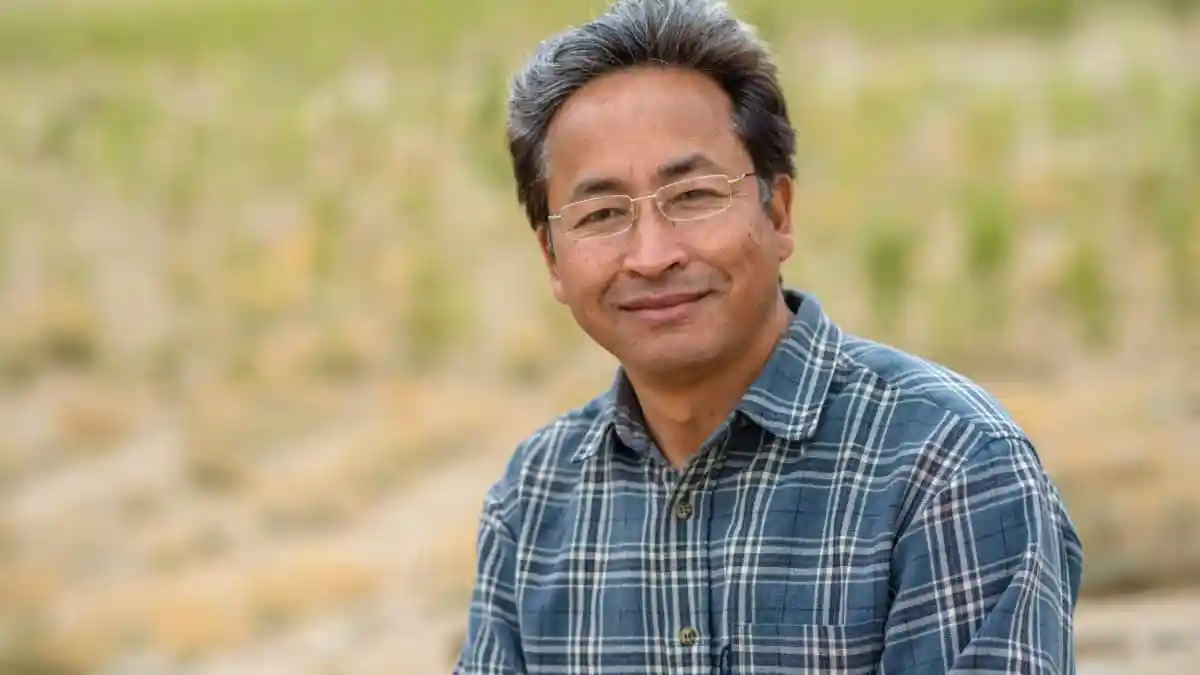“You can’t fight the climate crisis in boardrooms alone — you fight it with snow, science, and soul.”
In this crisis, Wangchuk didn’t reach for protests or policies first.
He reached for engineering. For education. For innovation rooted in tradition.
And in doing so, he became a global symbol of how indigenous knowledge and modern science can work together to heal the Earth.
Education, Rewired
Before he was the “Ice Man,” Wangchuk was already reshaping the system that failed him.
In 1988, he co-founded the Students’ Educational and Cultural Movement of Ladakh (SECMOL) — a radical school for ‘failed’ students. At SECMOL, there were no rote exams. No rankings. Students learned by building solar‑heated buildings, managing farms, and running the campus themselves.
It worked. SECMOL graduates became community leaders, engineers, and educators — all with a deep understanding of ecology, culture, and civic responsibility.
His ideas later inspired Bollywood’s iconic character “Phunsukh Wangdu” in *3 Idiots* — though his real‑life story is even more extraordinary.
Ice Stupas: Turning Melting Water Into Hope
As Ladakh’s glaciers receded due to global warming, entire villages ran out of water by springtime — just when it was most needed.
Wangchuk’s revolutionary solution? Create artificial glaciers — called Ice Stupas — by freezing winter stream water vertically into towering conical structures that slowly melt in spring, supplying water when farmers need it most.
“We can’t bring back the lost glaciers. But we can build new ones — one ice stupa at a time.”
Ice Stupas are now replicated across the Himalayas, and even adapted in Switzerland.
Learn more at the official Ice Stupa Project website.
Now, Climate Activist in Action
In recent years, Wangchuk has become a voice for mountain people, advocating for ecological protection and constitutional rights for Ladakh:
- Led hunger strikes and peaceful campaigns for Sixth Schedule autonomy
- Warned of dangers from unsustainable tourism, glacial retreat, and over‑construction
- Called for preservation of Himalayan biodiversity, cultural identity, and water systems
His activism is not ideological — it’s ecological. Rooted in deep data, deeper tradition, and deepest concern for his homeland.
Recognitions
- Rolex Award for Enterprise
- Ramon Magsaysay Award
- UNESCO Chair for Earth Architecture
- Featured by TIME, National Geographic, and BBC
- Founder of Himalayan Institute of Alternatives, Ladakh (HIAL) — a university reimagining higher education for mountain regions
His Words
“Mountains are not obstacles. They are teachers.”
“What happens in the Himalayas doesn’t stay in the Himalayas — it affects all of Asia.”
“We must rewild our minds as much as our lands.”
Why He’s a Human of Change
- Because he found solutions in snow where others found crisis
- Because he redefined education as empowerment, not examination
- Because he shows that climate innovation doesn’t always come from cities — sometimes it flows from glaciers
Sonam Wangchuk is not just conserving Ladakh.
He’s cooling the future — for the planet, and for generations to come.


